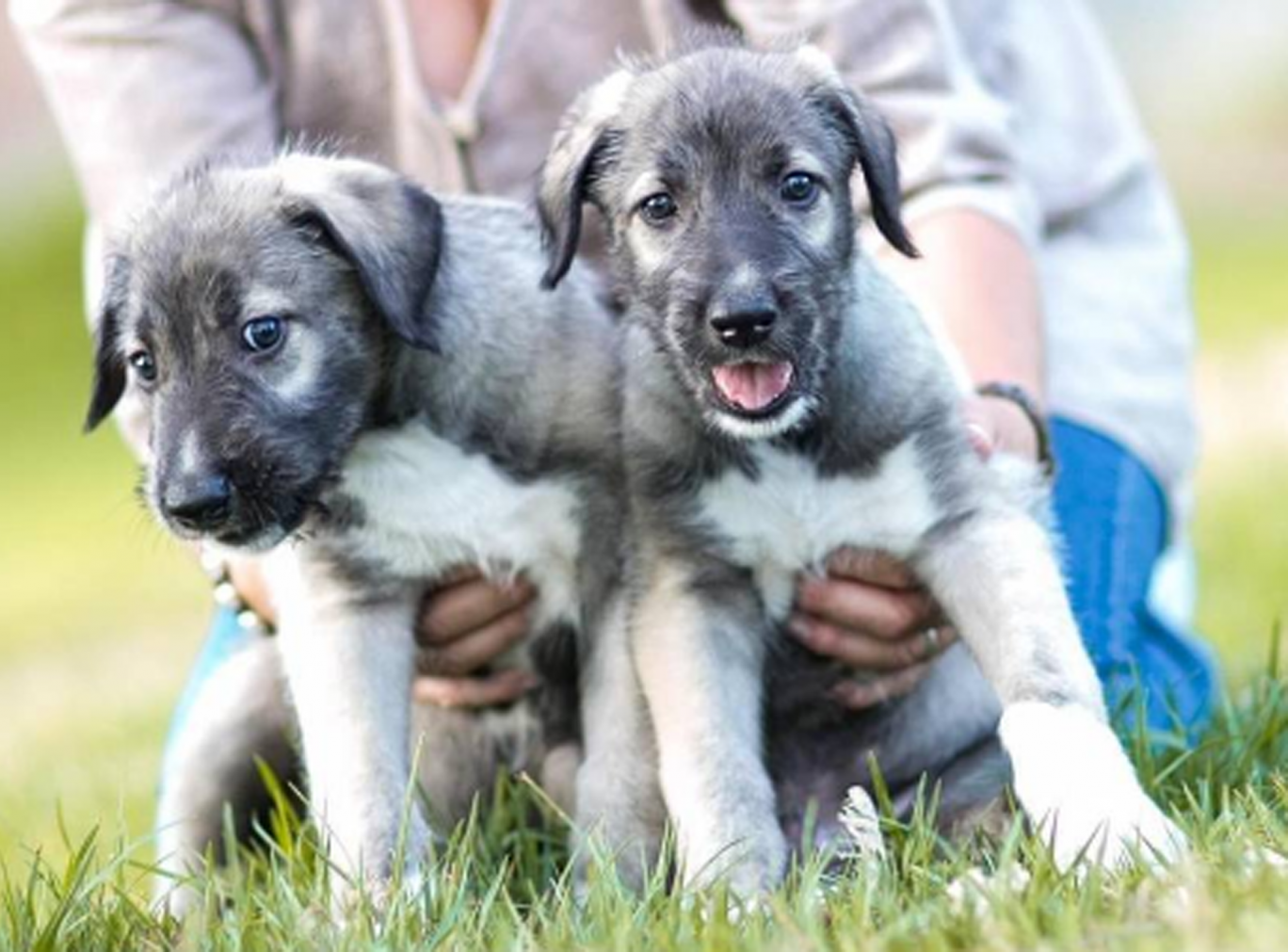World's first ever identical twin puppies born in South Africa
The twins, while having the exact same DNA, do have subtle differences in their markings

The world's first ever identical twin puppies have been born in South Africa.
A female Irish Wolfhound gave birth to puppies Cullen and Romulus via Caesarean section at Rant en Dal animal hospital in Mogale City, South Africa.
The mother had been showing distress and prolonged abdominal straining when she was due to give birth.
It started out as a routine procedure for vet Dr Kurt de Cramer as he averages 900 Caesarean sections every year, BBC reports.
On discovering an unusual bulging in the mother's uterus, he was shocked to find two foetuses attached with umbilical cords to the same placenta.
Dr de Cramer said: "When I realised that the puppies were of the same gender and that they had very similar markings, I also immediately suspected that they might be identical twins having originated from the splitting of an embryo."
The vet was not able to marvel for much longer as he had to deliver the twin's five normal siblings each with their own placenta.
His suspicions were confirmed by reproductive specialists Carolynne Joone of James Cook University in Australia and Johan Nöthling from the University of Pretoria in South Africa.
Ms Joone received blood samples from Cullen and Romulus when they were two weeks old and the results proved they were identical genetic twins.
The pair's findings were published in the journal Reproduction in Domestic Animals.
The twins, while having the exact same DNA, do have subtle difference in markings on their fur.
Identical genes can be expressed differently as Dr de Cramer explained: "Human identical twins also have the same genes, but because those genes are expressed differently in each person, they have different freckle and fingerprint patterns."
Further tests were done on the twins' siblings who were all found to have the close genetic identities normally expected in a litter.
Subscribe to Independent Premium to bookmark this article
Want to bookmark your favourite articles and stories to read or reference later? Start your Independent Premium subscription today.

Join our commenting forum
Join thought-provoking conversations, follow other Independent readers and see their replies